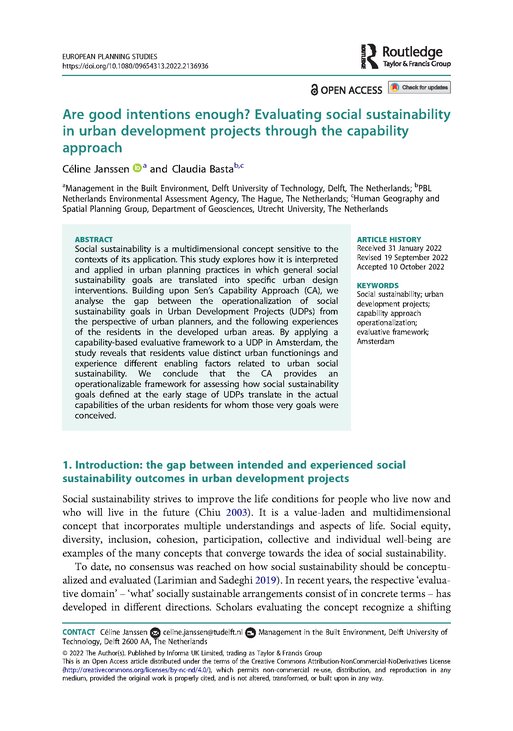Are good intentions enough? Evaluating social sustainability in urban development projects through the capability approach
Social sustainability is a multidimensional concept sensitive to the contexts of its application. This study explores how it is interpreted and applied in urban planning practices in which general social sustainability goals are translated into specific urban design interventions. Building upon Sen’s Capability Approach (CA), we analyse the gap between the operationalization of social sustainability goals in Urban Development Projects (UDPs) from the perspective of urban planners, and the following experiences of the residents in the developed urban areas. By applying a capability-based evaluative framework to a UDP in Amsterdam, the study reveals that residents value distinct urban functionings and experience different enabling factors related to urban social sustainability. We conclude that the CA provides an operationalizable framework for assessing how social sustainability goals defined at the early stage of UDPs translate in the actual capabilities of the urban residents for whom those very goals were conceived.

Are good intentions enough? Evaluating social sustainability in urban development projects through the capability approach
Publicatiedatum: 30 oktober 2022
Download “Are good intentions enough? Evaluating social sustainability in urban development projects through the capability approach”